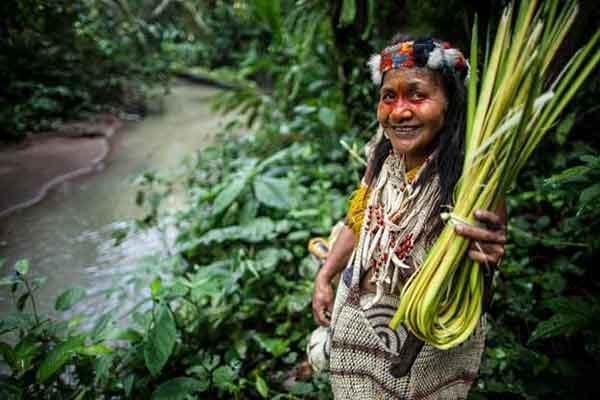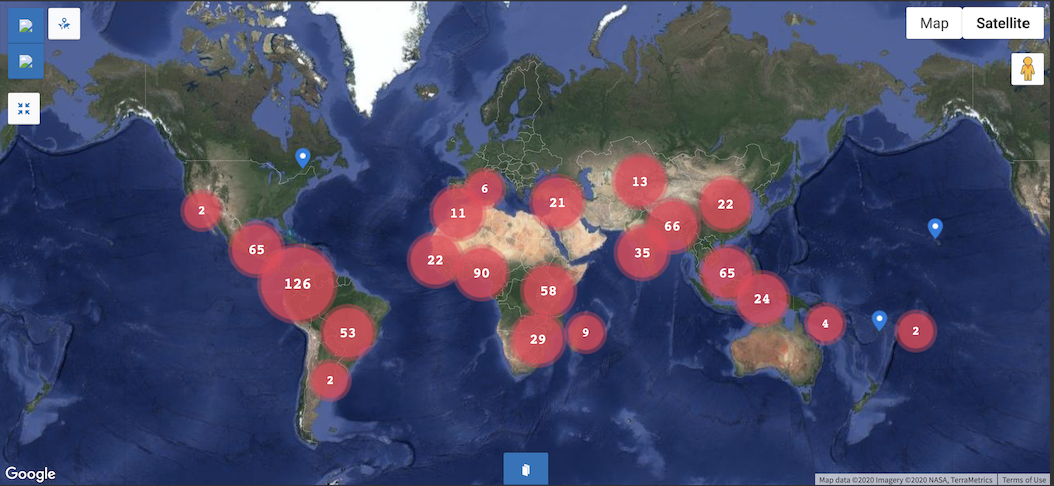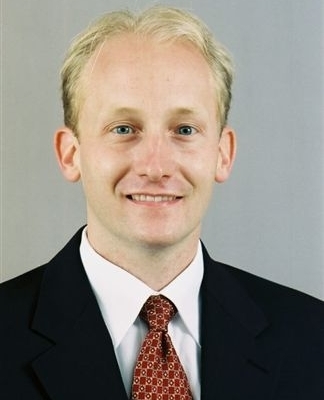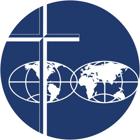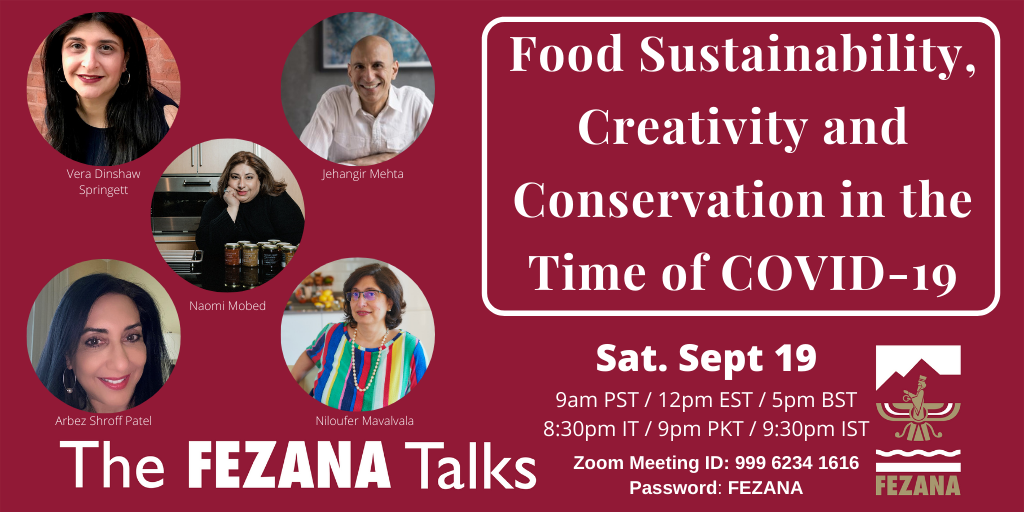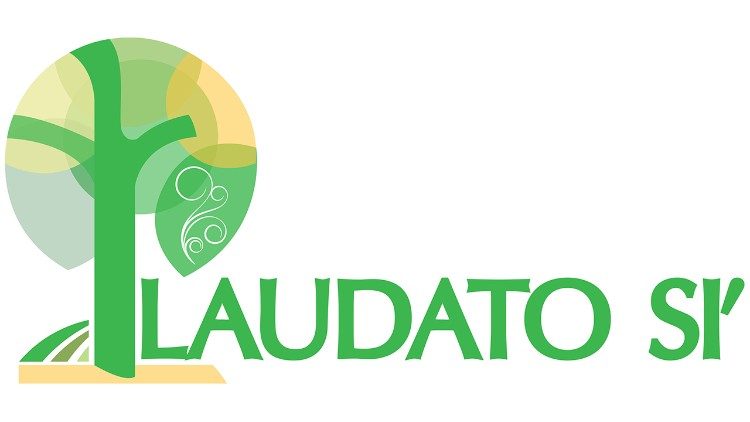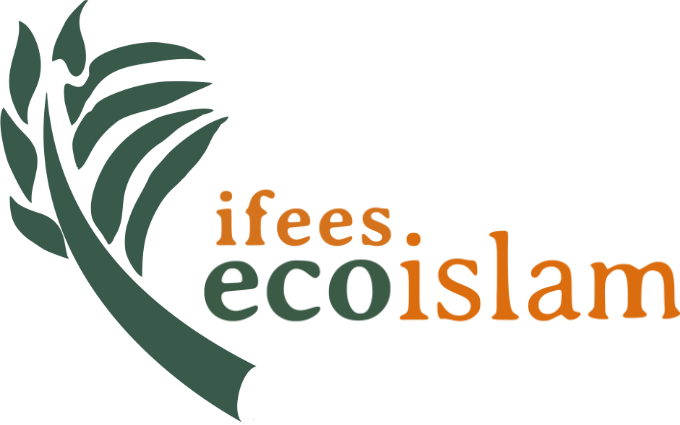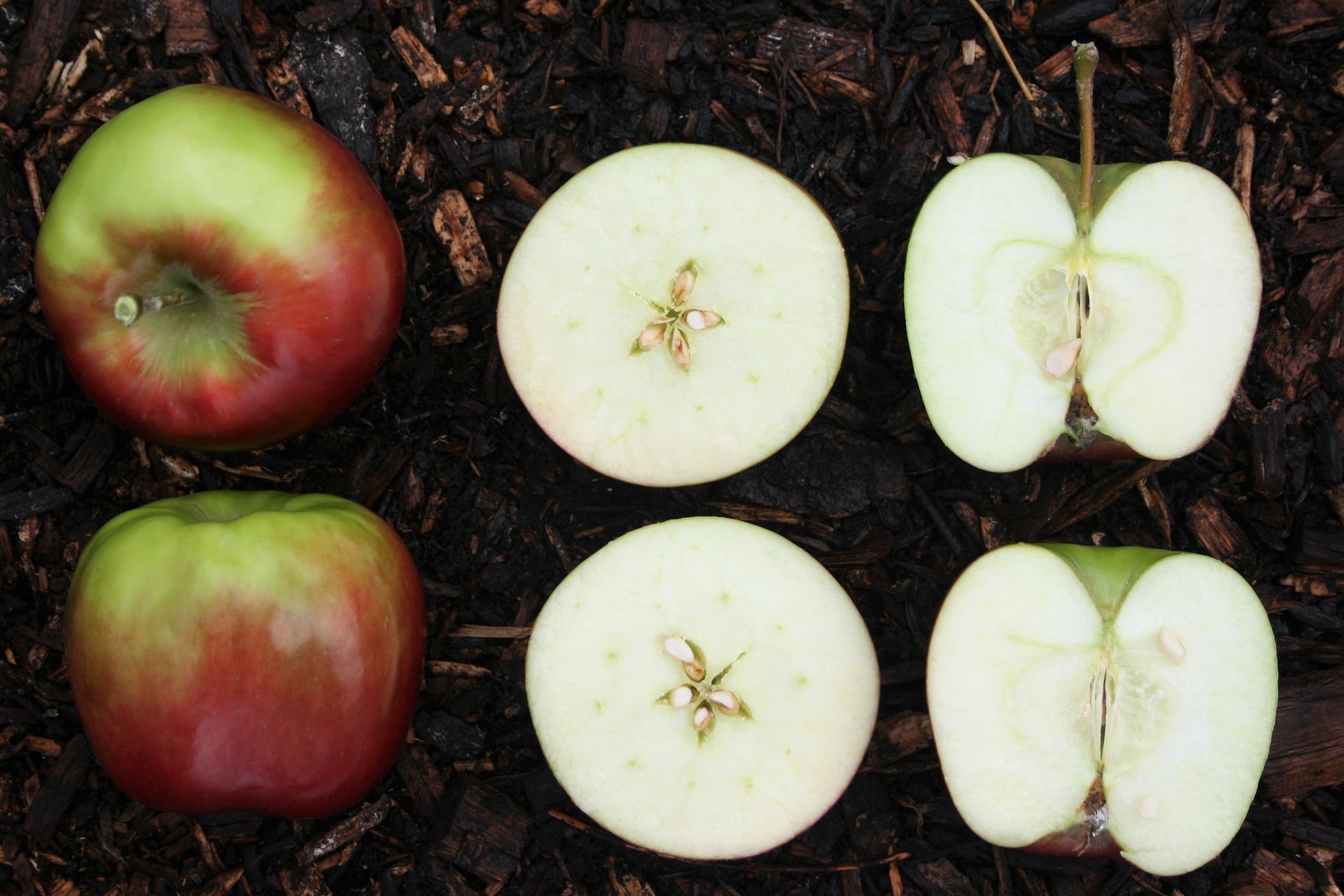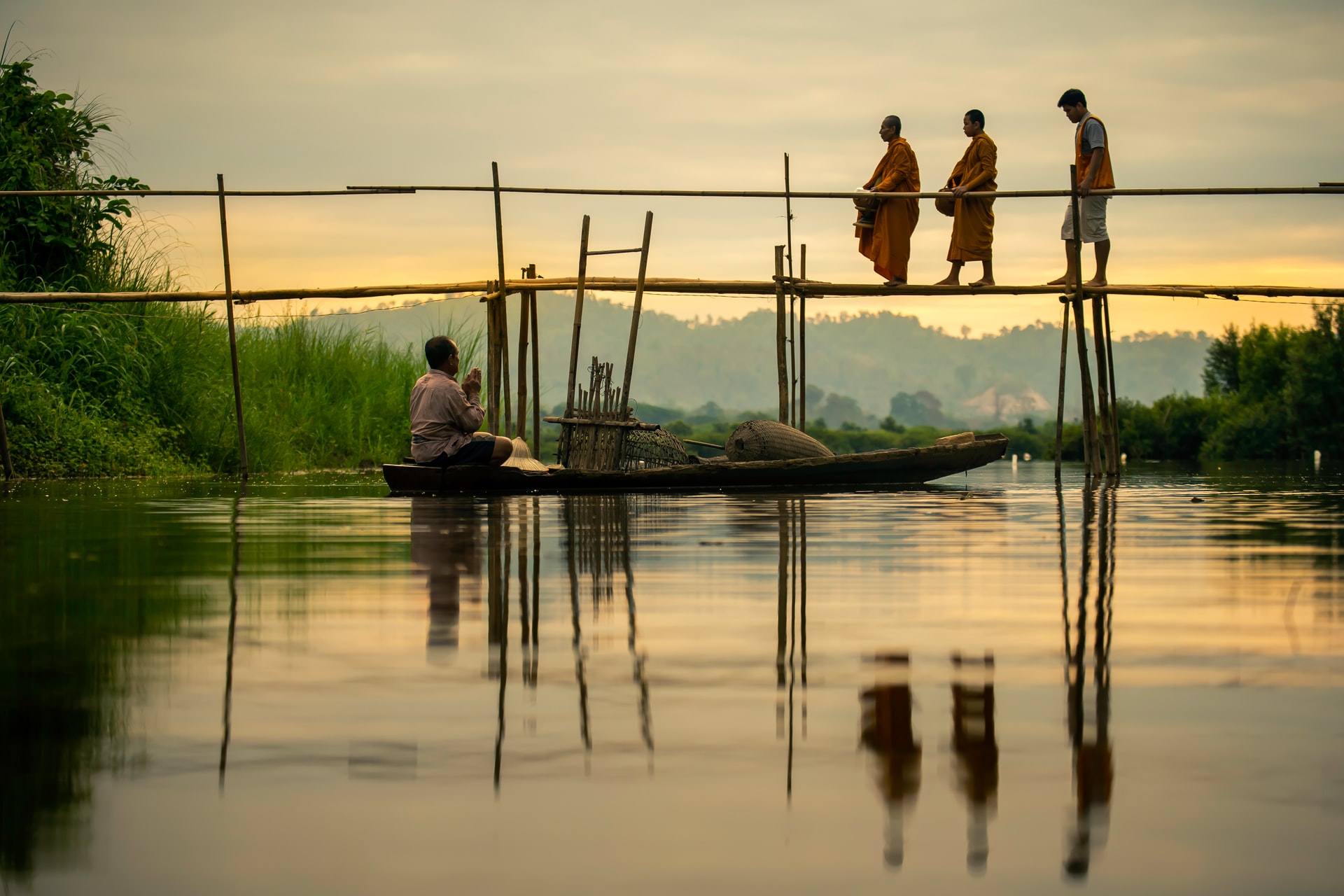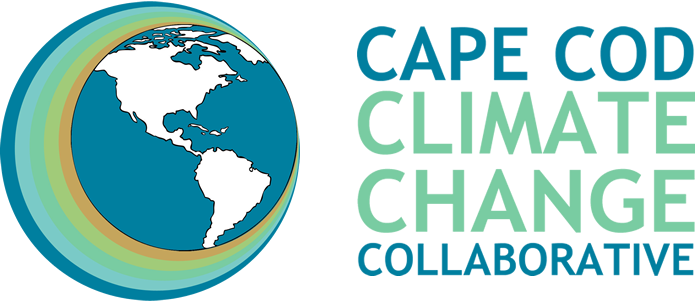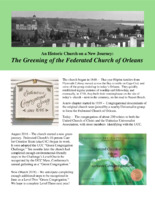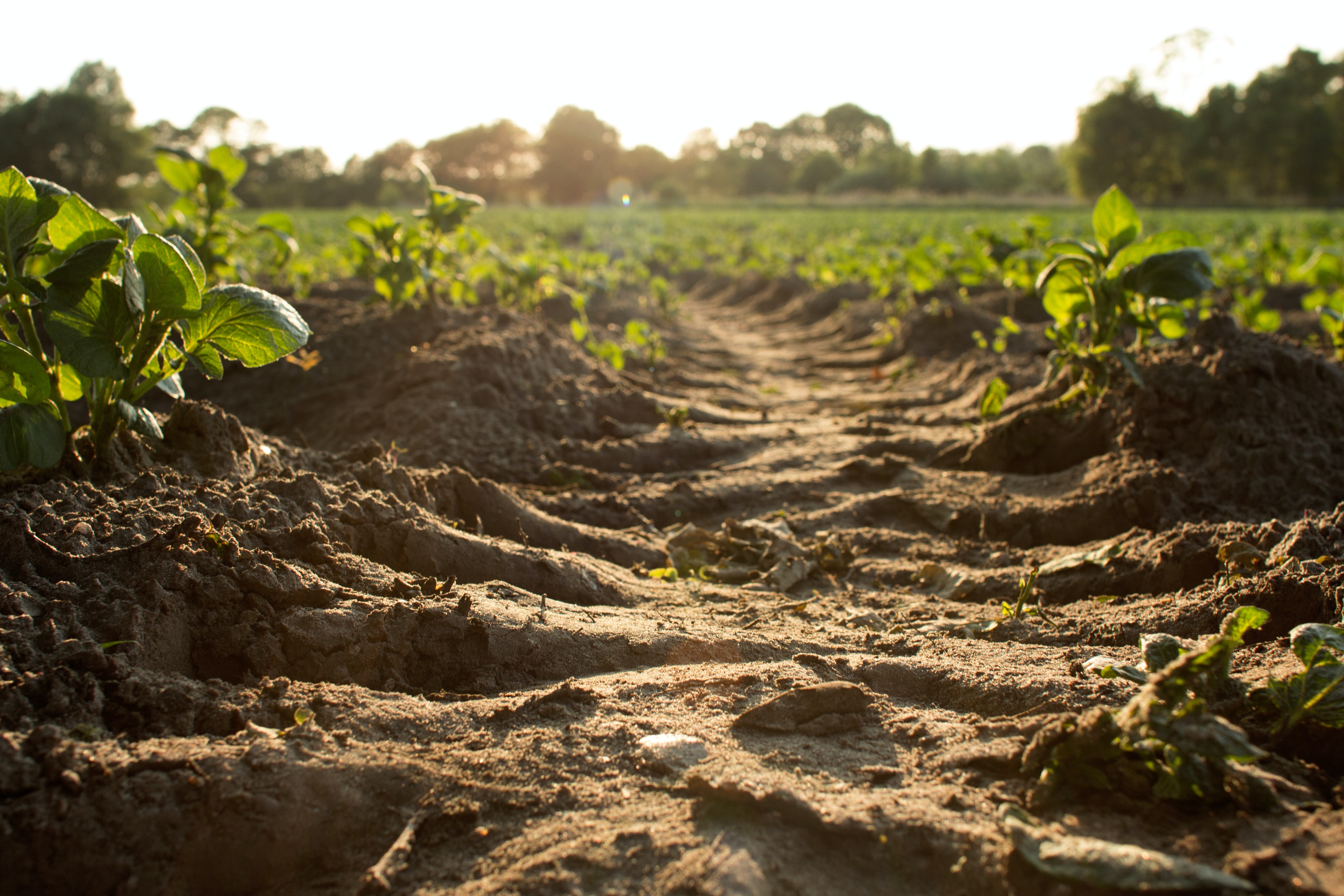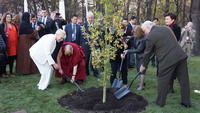Search
74 items
-
Indigenous peoples and local communities offer best hope for our planetary emergency
Indigenous peoples steward 80 percent of the world’s remaining biodiversity, yet their voices are often excluded from decision-making. Moreover, such environmental defenders remain a vulnerable group that is troubled by intimidation and torture. In this article, the authors cover a few organizations, such as Nature for Life Hub and Youth4Nature, established to empower and defend the voices of indigenous peoples, local communities, and the youths. -
Nature-Based Solutions Database
As a part of the Equator Initiative and the UNDP (United Nations Development Programme), the Nature-Based Solutions Database connects communities through sharing thousands of viable eco-solutions from 500+ communities across five continents.
Explore the Solutions Database to learn how outstanding local communities and indigenous peoples around the world are making possible the achievement of the UN Sustainable Development Goals through nature-based actions.
-
Profile: Jerry Freewalt
Jerry Freewalt is Director of the Office for Social Concerns of the Catholic Diocese of Columbus, Ohio. In this capacity, he serves as an educator and advocate to further the understanding of the Church’s social justice teachings. Jerry joined the office in 1995 as the respect life coordinator. Jerry also administers the respect life program, parish social ministry, rural life, jail and prison ministry, advocacy for persons with disabilities, and other education and advocacy efforts. -
Columban Center for Advocacy and Outreach
The Columban Center for Advocacy and Outreach (CCAO) was founded in 1985 as the national advocacy office for the Missionary Society of St. Columban in the United States.
CCAO serves as the line of communication between Columban missionaries on the ground and policy-makers in Washington, D.C. Their mission is to work towards a more just, peaceful, and environmentally sustainable world by engaging in the political process guided by our faith and the Gospel. They work for structural change for the poor and marginalized populations Columbans serve around the world. Moreover, they advocate for policies and structures that bring society and the world into the right relationships with all of God’s Creation.
CCAO follows Catholic Social Teaching as their lens to engage in legislative advocacy and community engagement. -
Conference of the Parties (COP)
The COP is the supreme decision-making body of the Convention. All States that are Parties to the Convention are represented at the COP, at which they review the implementation of the Convention and any other legal instruments that the COP adopts and take decisions necessary to promote the effective implementation of the Convention, including institutional and administrative arrangements. -
Plant with Purpose
Plant With Purpose’s programs equip farming families around the world to increase farm yields, heal damaged ecosystems, improve nutrition, and increase household savings and opportunities. Always standing with the world's most vulnerable populations, this integrated approach solves two major issues facing the world today: environmental degradation and rural poverty.
You can plan a tree or fundraise in partnership with Plant with Purpose. -
The FEZANA Talks #9: Food Sustainability, Creativity & Conservation During COVID-19
COVID has changed the way we eat, cook and live in many ways — good and bad. This discussion hosted by FEZANA (the Federation of Zoroastrian Associations of North America) focuses on the impact of the pandemic on the food supply chain, and how it affected the availability of the basics, leading people to get more creative in the kitchen. Everything from making our own bread to using leftovers to create new unexpected meals, has allowed people to ramp up their cooking skills, rely on sustainability and be more conscious of food wastage. Historically resembling the ways of our ancestors. -
Laudato Si' Action Platform
The Laudato Si' Action Platform is a collaboration between the Vatican, an international coalition of Catholic organizations, and "all people of good will." Rooted in the strengths and realities of communities around the world, the platform takes a group-up approach to empower all to take "decisive action, here and now" as we journey towards a better future together.
The platform offers:
- Laudato Si Plans for institutions, communities, and families to use and implement their response to Laudato Si'
- A process-oriented approach
- Practical guidance on actions that help build a better future through the Laudato Si’ Goals
- Recognition of progress -
The Islamic Foundation for Ecology and Environmental Sciences (IFEES)
The Islamic Foundation for Ecology and Environmental Sciences (IFEES) is a foundation founded in the United Kingdom committed to the preservation of the Earth as a healthy environment for all living things. This is also a call on Muslims to live up to their obligations as guardians of Allah's creation (Khalaifa - Qur'an 6:165) and endeavor to ensure that future generations inherit a livable planet.
"Our exertions since the mid-1980s have been directed towards creating mass awareness and include research, the production of teaching materials, training, and project development and we offer this work as a gift to our fellow humans whoever and wherever they may be." -
The 12 Principles of Permaculture: A Way Forward
This blog article describes the basics of permaculture (permanent culture). Permaculture is rooted in the observation of natural systems and indigenous knowledge. The author introduces the solution permaculture offers to help us transition to a more resilient, ethical, and sustainable future better for the planet and its inhabitants. -
How faith-based organizations are restoring nature
Many ecosystems around the world, from forests to coral reefs, are in decline, victims of pollution, climate change and resource extraction.
But faith-based organizations are increasingly stepping in to help repair these natural spaces. From projects to save Ethiopia's forests to yogic farming in India to botanic gardens in Qatar, in many cases, religious leaders have become environmental influencers, championing nature-based solutions that experts say are crucial to saving the ecosystems that underpin human society. -
The Cape Cod Climate Change Collaborative
Established in 2016, the Cape Cod Climate Change Collaborative is a coalition of Cape and Islands-based organizations, businesses and citizens whose mission is to unite available knowledge, resources, talent and tools to mitigate climate change impacts on Cape Cod, reduce greenhouse gas emissions, and work toward achieving “net zero”-based goals for the Cape & Islands. We seek to create conditions to foster innovative, feasible, cross-sector solutions to the climate crisis.
Board members include community leaders from across the region representing organizations such as the Association to Preserve Cape Cod, Cape Air, Cape Light Compact, Center for Coastal Studies, Friends of Pleasant Bay, Outer Cape Energize, Woods Hole Research Center, and numerous faith, educational, non-profit and business entities. -
The Greening of the Federated Church of Orleans
The church began in 1646 – That year Pilgrim families from Plymouth Colony moved across the Bay to settle on Cape Cod, and some of the group ended up in today’s Orleans. They quickly established regular patterns of worship and fellowship, and eventually, in 1718, they built their meetinghouse on the site of today’s church – next to the cemetery, on the road to Nauset Beach.
August 2016 – The church started a new green journey. Federated Church's 10-person Care for Creation Team (aka C4C) began its work. It soon adopted the UCC “Green Congregation Challenge.” Ten months later the church had completed enough environmental-friendly steps in the Challenge’s Level One to be recognized by the UCC Mass. Conference's annual gathering as a “Green Congregation.”
Now (March 2018) – We anticipate completing enough additional steps to be recognized in June as a Level Two “Green Congregation.” We hope to complete Level Three next year! -
Books on Religion and Climate Change
This list includes 37 titles (and counting) that examine climate change and our connection to the environment from multifaceted religious perspectives.
This could serve as an inspiration for anyone who's interested in learning more about the philosophy of environmentalism.
The list updates as new books are being published. -
A Bahá'í Compilation on Soil and Earth
This compilation gathers a selection of references to soil, earth and minerals in the Bahá'í Writings, including the ways these are referred to both symbolically and literally.
Contents:
Mineral Kingdom
Agriculture
Metaphorical Uses
Humility
Earth as Tomb
Rain on Soil
Fertile versus Barren
Cultivation - Divine Education -
Interfaith Rainforest Initiative (IRI) Campaign Videos
The Interfaith Rainforest Initiative (IRI) creates artistic and well-produced videos that accompany their programs on climate change education and awareness-raising in branch offices around the world.
These videos are great resources for those looking for multimedia inspirations that amplify sustainability communications efforts. -
Profile: EquaSion (Equality, Spirituality, Inclusion)
EquaSion, formerly known as the Bridges of Faith Trialogue, is a non-partisan civic organization founded upon interfaith dialogue that works to develop educational and community service programming to foster greater understanding, respect, compassion, inclusion, and engagement for all people and faith communities in Greater Cincinnati and beyond. -
Sustainable Consumption Research and Action Initiative (SCORAI)
The Sustainable Consumption Research and Action Initiative (SCORAI) is a knowledge network of professionals working at the interface of material consumption, human well-being, and technological and cultural change. We aim to foster a transition beyond the currently dominant consumer society. SCORAI provides a forum for scholars and practitioners striving to understand the drivers of the consumerist economy in affluent technological societies; to formulate and analyze options for post-consumerist lifestyles, social institutions, and economic systems; and to provide the knowledge for emergent grassroots innovations, social movements, and public policies. -
The Orthodox Fellowship of the Transfiguration
The Orthodox Fellowship of the Transfiguration is based out of Santa Rosa, California, and is comprised of a dedicated group of Orthodox Christians who provide an Orthodox response to the environmental crisis on Earth. Although this group is based in the United States, its messages are heard around the world. Since the beginning of their organization, they have created lectures, conferences, and a newsletter. This group offers programs and resources that allow readers to engage themselves in conservation efforts with an Orthodox Christian philosophy. -
Mid-Atlantic Coast
Ducks Unlimited is a conservation organization that primary purpose is to restore and protect native duck populations. The article about the MId-Atlantic Coast project is one of Ducks Umlimited biggest ongoing projects currently. The project is to restore and protect the wetlands from Chesapeake Bay to Long Island. The wetlands are a vital location for ducks because of the food, shelter, and safety that they provide. Ducks Unlimited is currently restoring damaged areas and working with local governments to legally protect these areas. Further Ducks Unlimited is working with locals on what they can do to protect and restore the wetlands. The article talks about the focuses of the project along with the partners. -
Religion and Environmental Values in America
"Religion and Environmental Values in America explores the emerging and increasingly important topic of religion and sustainability, with particular attention to first understanding what it takes, philosophically and practically, to overcome polarizing debates about such topics and to understand environmental issues at their roots. The book then examines a range of case studies highlighting key areas of faith-based sustainability solutions." -
Querida Amazonia
This post-synodal exhortation by Pope Francis draws and continues from Laudato Si'. It specifically addresses the region of the Amazon and Pope Francis' ideals for supporting its environment. In summation, he says, "I dream of an Amazon region that fights for the rights of the poor, the original peoples and the least of our brothers and sisters, where their voices can be heard and their dignity advanced.
I dream of an Amazon region that can preserve its distinctive cultural riches, where the beauty of our humanity shines forth in so many varied ways.
I dream of an Amazon region that can jealously preserve its overwhelming natural beauty and the superabundant life teeming in its rivers and forests.
I dream of Christian communities capable of generous commitment, incarnate in the Amazon region, and giving the Church new faces with Amazonian features." -
Querida Amazonia Beloved Amazon Study Guide on Select Themes
"This reflection/discussion guide, for use with Pope Francis’ apostolic exhortation, Querida
Amazonia [Beloved Amazon], can help individuals and small groups explore and dialogue with
aspects of this important document related to listening to “the cry of the poor,” the rights of
indigenous persons, solidarity, and action to care for God’s creation. It does not cover all themes in
the apostolic exhortation. The guide includes a template for small group discussion, as well as
questions for either individual or small group reflection on particular themes in the document." -
Practical Steps Towards Protection of the Environment
"These days the environment- the source of life for all beings in the world including Tibet, the Land of Snows- is undergoing extensive degeneration. At this time it is extremely important that every human being, according to his or her ability, consistently puts effort into ensuring the conservation and protection of this planet's environment and its inhabitants." -
Hindu Faith Statement on the Environment
This statement consists of three sections reflecting the major strands of Hindu thought: Sustaining the Balance, Sacrifice and Protection, and Breaking the Family. It was compiled as a statement of the stance of the Hindu faith on environmental issues and how to approach nature.

